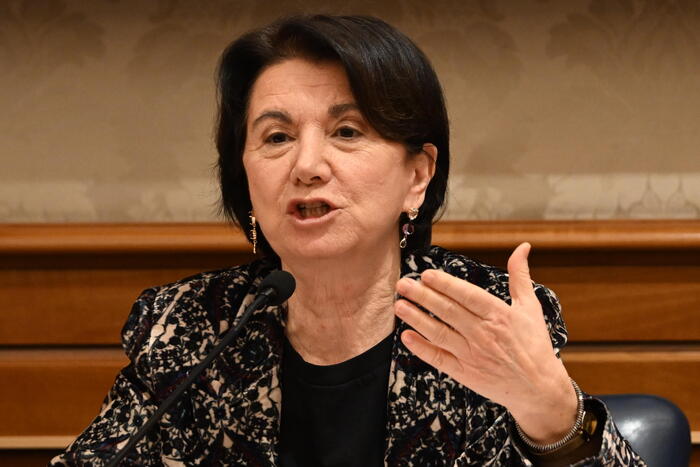A man takes care of his baby in Naples. Ciro De Luca (Reuters)
Gender equality is also expressed in the ability to transmit identity to children through surnames.
The only inheritance received as soon as they were born and the only way to officially perpetuate a piece of each mother's history.
And Italy, perhaps one of the European countries where less progress has been made in this field, yesterday corrected a historic injustice in this regard.
The Constitutional Court issued a ruling by which the paternal surname can no longer be automatically granted to the children, but rather they will bear that of both spouses, in the order that the couple agrees.
A revolution that puts an end to another of the great arrears of the transalpine country in terms of civil rights, but which must now be articulated through Parliament.
In Spain, a similar rule has been in force since 2017.
The court resolution establishes that the order in which the surnames are assigned will depend on what the parents decide, who can always continue to put only one if they deem it appropriate.
A way also to exhibit the equality of both parents before their own children.
“The Court sees the rule that automatically assigns the father's surname as discriminatory and damaging to the identity of the child.
In light of the principle of equality and in the interest of the child, both parents must be able to share the choice of surname, as it is a fundamental element of personal identity," the court explained in a statement.
The Constitutional Court, chaired by former Prime Minister Giuliano Amato, now considers that automatically granting the paternal surname violates several articles of the Constitution.
Especially the third, which establishes that "all citizens have the same social dignity and are equal before the law without distinction of sex."
The sentence comes after several claims, especially those of two families from Calabria and one from Bolzano, who went to court because she wanted to give her mother's surname 20 years ago.
The European Court of Human Rights had already agreed with him in 2014, but until today that sentence had not been recognized in Italy.
The only result that this struggle had obtained so far was to be able to assign both surnames to the children.
One of the best-known cases —also controversial— was that of Alessandra Mussolini, daughter of the Italian fascist dictator, who fought so that her children would also have her grandfather's surname so that it would not become extinct.
A claim that raises, deep down, the need to grant both surnames or to be able to choose the one that is considered most appropriate to perpetuate the history of the families.
Something that already happens in most European countries.
The key to the resolution, however, now lies in how Parliament will legislate and manage to put in order what could generate a chaos of requests and changes in the official documentation of all Italians.
The sentences of unconstitutionality are retroactive, but to apply it to children already born, it is not yet clear how to proceed or the degree of difficulty that parents will have to face.

/cloudfront-eu-central-1.images.arcpublishing.com/prisa/4XSTTYJDANFQZAD4OGXWA7TI5M.jpg)







